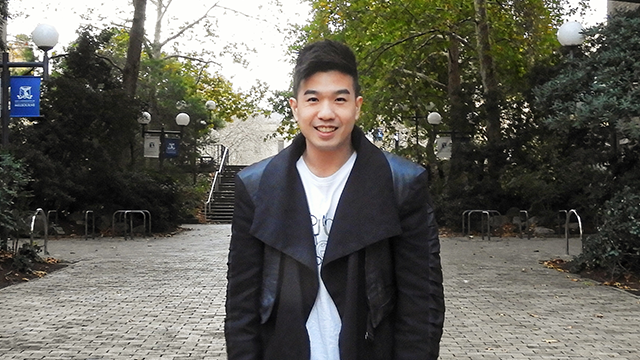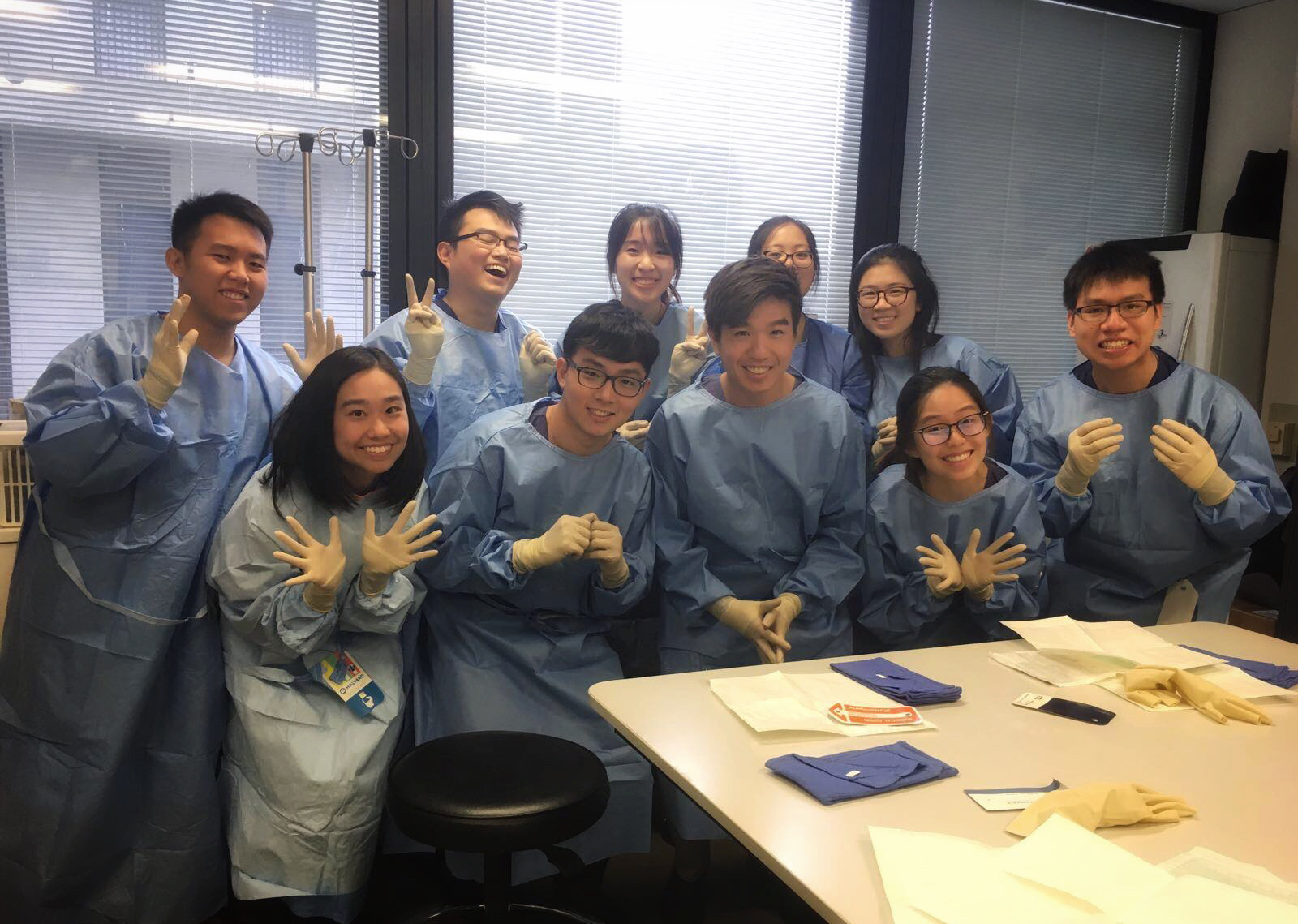"From our second year of study, the majority of our curriculum is taught in the hospital... The surgical curriculum was particularly exciting for me because I have a keen interest in surgery. I was given many opportunities during the rotation to observe and assist in surgical procedures."
 Michael started the Doctor of Medicine in 2017, after completing the Bachelor of Biomedicine at the University of Melbourne. He started his studies at Melbourne in 2015 after graduating from Singapore Polytechnic. Not only was Michael a part of the Dean’s Honour’s list in 2016, he also received the Sunderland Award for Neuroscience, which recognises the top student in the major. In 2019, he received a Pre-Employment Grant (PEG) sponsored by the Lee Foundation Overseas Medical Bursary Education Fund.
Michael started the Doctor of Medicine in 2017, after completing the Bachelor of Biomedicine at the University of Melbourne. He started his studies at Melbourne in 2015 after graduating from Singapore Polytechnic. Not only was Michael a part of the Dean’s Honour’s list in 2016, he also received the Sunderland Award for Neuroscience, which recognises the top student in the major. In 2019, he received a Pre-Employment Grant (PEG) sponsored by the Lee Foundation Overseas Medical Bursary Education Fund.
“Medicine has always been my lifelong dream. My passion is fuelled by my strong desire to want to help others and to alleviate the suffering of humanity.”
To illustrate his approach to medicine, Michael borrows words from the ‘father of pathology’, Rudolph Virchow:
Medicine is a social science and politics is nothing else but medicine on a large scale. […] The physicians are the natural attorneys of the poor, and social problems fall to a large extent within their jurisdiction.
For Michael, the University of Melbourne’s Bachelor of Biomedicine program was an excellent primer for the Doctor of Medicine (MD) program.
“The University of Melbourne has a reputation that precedes itself. Being the number one medical school in Australia applying to it was only logical. Also, because I was given the opportunity to complete my undergraduate studies at the University of Melbourne, I felt a strong sense of belonging to my alma mater. This has compelled me to apply for the Melbourne Medical School.”
Coming from Singapore and starting university in a foreign country is no small feat, but the support networks provided at the University of Melbourne helped Michael feel at home.
“There was definitely a big transition from high school to university. Initially it was a daunting experience because I was in a different country and environment. I had to make new friends and form new social circles. Conceptually, the content taught at university was also more challenging. I was also expected to be independent in terms of my learning. However, the University of Melbourne has provided lots of resources and support services to aid international students in transitioning into life in Australia. An example is Orientation Week. During O-Week, the University has many activities and booths that provide new students with many opportunities and services suitable for their needs.”
 Michael names the clinical school attachment, surgical curriculum and close friendships as particular highlights of the MD experience.
Michael names the clinical school attachment, surgical curriculum and close friendships as particular highlights of the MD experience.
"The clinical school attachment program is the thing I enjoyed most during my course. From our second year of study, the majority of our curriculum is taught in the hospital. We were also given the opportunity to go on ward rounds and talk to patients on our own. This give us exposure and trains us to be capable healthcare professionals.
"The surgical curriculum was particularly exciting for me because I have a keen interest in surgery. I was given many opportunities during the rotation to observe and assist in surgical procedures. The one that particularly stood out for me was a liver transplant procedure; the surgery itself took ten hours to complete.
"The biggest highlight for me, however, is being able to forge lasting friendships with other students. There is a large diversity of students from different cultures and backgrounds. This has allowed me to meet many different people from all walks of life that I would otherwise never encounter. This exposure has also provided me with valuable insight in terms of cultural competence and appropriateness.”
Michael credits the MD program for helping him develop several key skills integral to be a good clinician.
"Perhaps the two most important skills are good communication and teamwork skills, which are often overlooked. During my clinical years, I witnessed the benefits of having a cohesive team in terms of providing quality patient care. Patient outcomes tend to be better and fewer mistakes are usually made if everyone has a clear understanding of their role in a team.
"One of the goals that I have set for myself is to give my 100% in anything I do, be it work, studies or my hobbies. The journey itself often matters more than the outcome and hard work always pays off eventually. The second, and probably the most important goal, would be to never stop learning. Having this philosophy in mind helps guide me towards a path of perpetual self-improvement and mastery.”
Outside of class, Michael has been very involved in the Singaporean student community in Melbourne. He has been involved in the Singaporean Students’ Society at the University of Melbourne, the not-for-profit, Singaporeans of Victoria Incorporated, and is currently a subcommittee member of the Singapore Medical Society Victoria.
For current and hopeful med students, Michael recommends finding a balance to make the most of university.
“Study hard but also remember to spend some time on personal development. It is vital to have a good balance between the two. All work but no play makes Jack a dull boy. While in university, savour and enjoy every precious moment there! I often look back and reminisce about the good times I had while studying at the University of Melbourne.”